
Kumasi: The Beating Heart of Ghana's Ashanti Region
Kumasi, often referred to as 'The Garden City,' is the cultural capital of Ghana and the historic home of the Ashanti people. As you stroll through its bustling streets, you'll be captivated by the contrast of modernity and tradition, with its vibrant markets, colonial buildings, and sacred sites. The city's most famous attraction, the Manhyia Palace, offers a glimpse into the rich history and heritage of the Ashanti Kingdom. Here, you can learn about the Ashanti people's storied past and their influential leader, the Asantehene. For a more immersive experience, visit the National Cultural Centre, where you can witness traditional crafts, music, and dance performances. No visit to Kumasi would be complete without exploring the Kejetia Market, one of the largest open-air markets in West Africa. The market is a sensory overload of sights, sounds, and smells, offering everything from fresh produce to intricate Kente cloth. Be prepared to haggle and soak in the vibrant atmosphere. Nature lovers will appreciate the city's lush surroundings, particularly the Bobiri Forest Reserve and Butterfly Sanctuary, where you can enjoy a peaceful escape from the urban hustle. Additionally, the Owabi Wildlife Sanctuary offers a chance to see various bird species and other wildlife in their natural habitat.
Local tips in Kumasi
- Visit the Manhyia Palace early in the day to avoid crowds and have more time to explore.
- Wear comfortable shoes when visiting Kejetia Market, as it covers a vast area and involves a lot of walking.
- Carry some local currency (Ghanaian Cedi) for small purchases and haggling in the markets.
- Hire a local guide for a more in-depth understanding of the Ashanti culture and history.
- Plan your visit during the Akwasidae Festival to witness traditional celebrations and royal ceremonies.
Neighbourhoods in Kumasi
Kumasi: The Beating Heart of Ghana's Ashanti Region
Kumasi, often referred to as 'The Garden City,' is the cultural capital of Ghana and the historic home of the Ashanti people. As you stroll through its bustling streets, you'll be captivated by the contrast of modernity and tradition, with its vibrant markets, colonial buildings, and sacred sites. The city's most famous attraction, the Manhyia Palace, offers a glimpse into the rich history and heritage of the Ashanti Kingdom. Here, you can learn about the Ashanti people's storied past and their influential leader, the Asantehene. For a more immersive experience, visit the National Cultural Centre, where you can witness traditional crafts, music, and dance performances. No visit to Kumasi would be complete without exploring the Kejetia Market, one of the largest open-air markets in West Africa. The market is a sensory overload of sights, sounds, and smells, offering everything from fresh produce to intricate Kente cloth. Be prepared to haggle and soak in the vibrant atmosphere. Nature lovers will appreciate the city's lush surroundings, particularly the Bobiri Forest Reserve and Butterfly Sanctuary, where you can enjoy a peaceful escape from the urban hustle. Additionally, the Owabi Wildlife Sanctuary offers a chance to see various bird species and other wildlife in their natural habitat.
When is the best time to go to Kumasi?
Iconic landmarks you can’t miss
Kumasi City Mall
Discover the vibrant shopping and dining scene at Kumasi City Mall, the premier retail destination in Kumasi, Ghana.
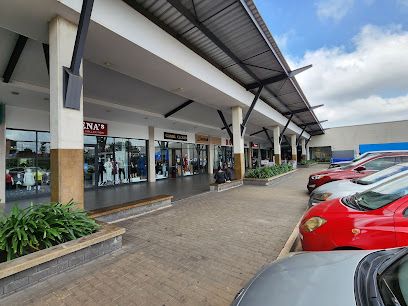
Kumasi Central Market
Explore the vibrant Kumasi Central Market, a cultural and commercial hub filled with local crafts, fresh produce, and the essence of Ghanaian life.
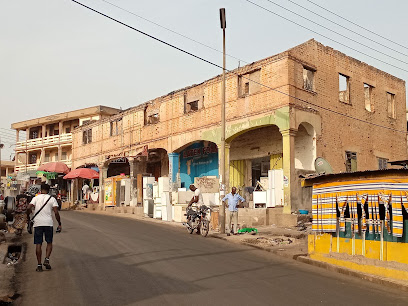
Lancaster Kumasi City
Discover Comfort and Local Culture at Lancaster Kumasi City - Your Home Away from Home in Kumasi, Ghana.
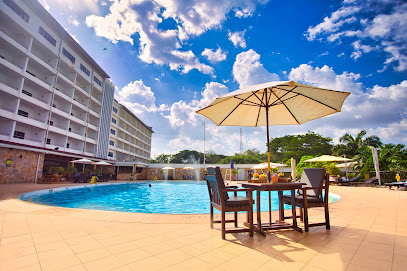
Kejetia Market
Discover the vibrant culture and flavors at Kejetia Market, one of West Africa's largest markets located in the heart of Kumasi, Ghana.
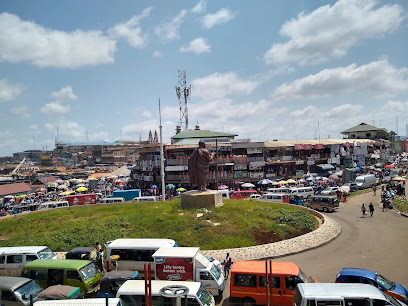
Ike’s Cafe and Grill
Experience authentic Ghanaian cuisine at Ike's Cafe and Grill, located in the heart of Kumasi's cultural scene.
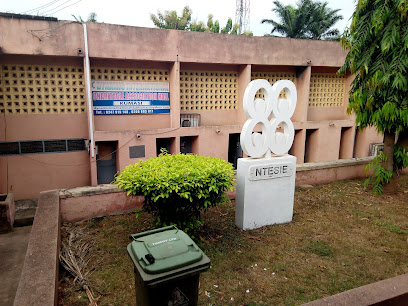
Kejetia New Market and Bus Terminal
Discover the heart of Kumasi at Kejetia New Market and Bus Terminal, where vibrant culture meets daily commerce in a bustling West African hub.
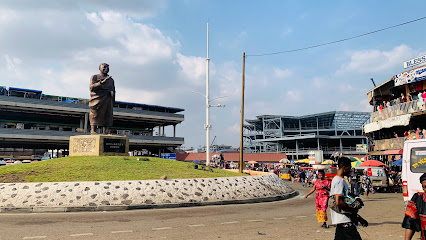
Achemfour Market Station
Experience the vibrant culture and local flavors at Achemfour Market Station, the bustling heart of Kumasi's transport network.
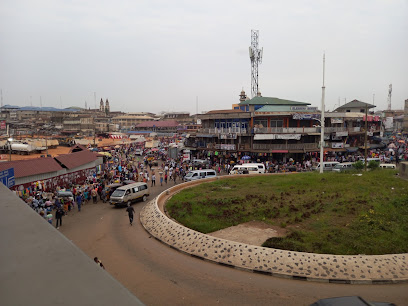
Manhyia Palace
Explore the heritage of the Ashanti Kingdom at Manhyia Palace, a captivating museum in Kumasi, Ghana.
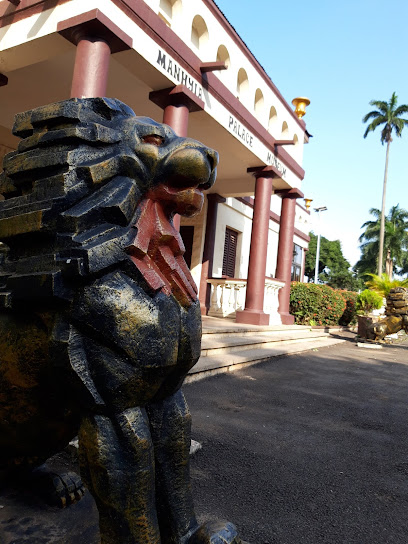
Kejetia Market (New)
Explore Kejetia Market, Kumasi's vibrant marketplace brimming with local crafts, delicious street food, and the essence of Ghanaian culture.
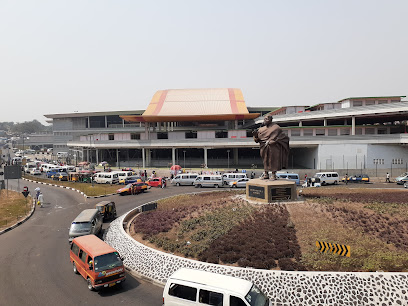
Royal Parade Grounds
Experience the tranquil beauty of Royal Parade Grounds in Kumasi, a serene park perfect for relaxation and leisure amidst vibrant nature.
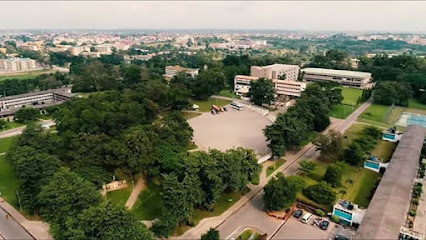
Vienna City Kumasi and Roses Guest House
Discover the lively blend of gaming, dining, and relaxation at Vienna City Kumasi and Roses Guest House - a vibrant escape in Kumasi, Ghana.
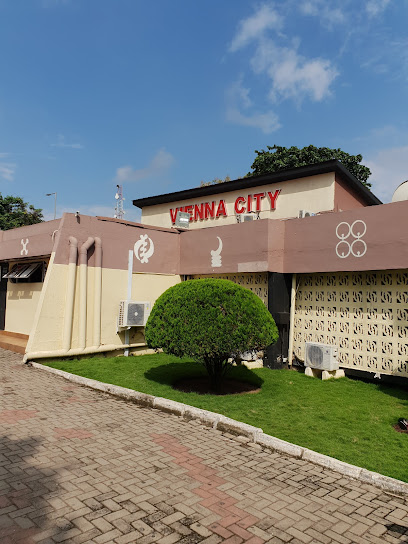
komfo Anokye Sword Site
Explore the Komfo Anokye Sword Site, a historic landmark in Kumasi steeped in the legacy of the Ashanti Kingdom and its cultural richness.
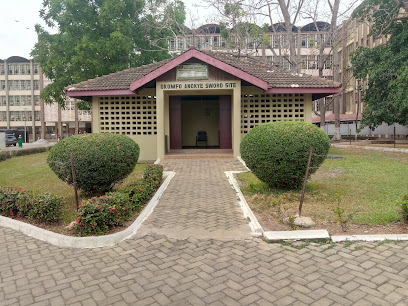
Baba Yara Sports Stadium
Experience the vibrant sports culture of Ghana at Baba Yara Sports Stadium, a landmark of passion and community spirit in Kumasi.
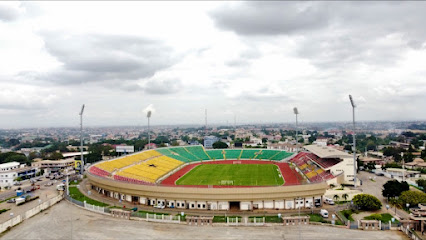
Kumasi Zoological Gardens
Explore the vibrant wildlife and educational wonders of Kumasi Zoological Gardens, a top tourist attraction in Ghana's cultural heart.
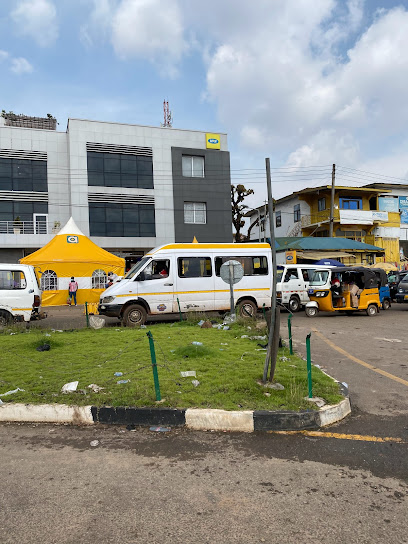
Noble House - Kumasi
Experience the perfect blend of Chinese and Indian cuisines at Noble House - a culinary treasure in Kumasi offering exquisite flavors and an inviting atmosphere.
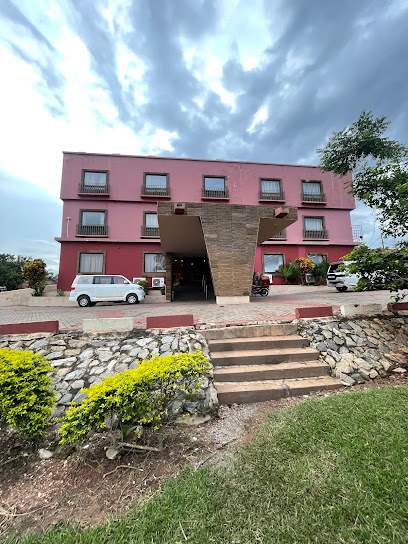
Unmissable attractions to see
Manhyia Palace
Explore the grandeur of Manhyia Palace, a cultural gem in Kumasi, showcasing the rich heritage of the Ashanti Kingdom through captivating exhibits.

Royal Parade Grounds
Explore the lush landscapes and cultural vibrancy of the Royal Parade Grounds in Kumasi, a serene park perfect for relaxation and community engagement.
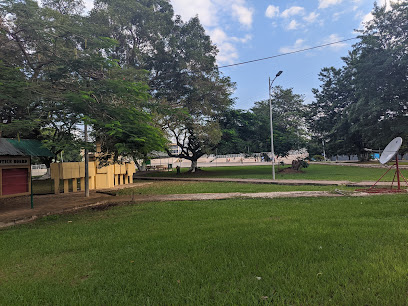
komfo Anokye Sword Site
Explore the Komfo Anokye Sword Site in Kumasi, Ghana, a historic landmark rich with legend and the essence of the Ashanti Empire's heritage.
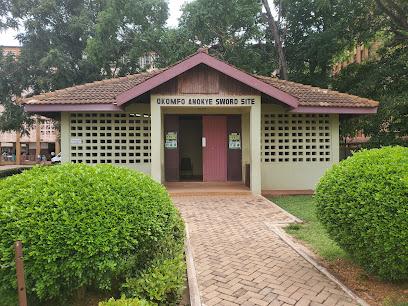
Kumasi Zoological Gardens
Explore diverse wildlife at Kumasi Zoological Gardens, a family-friendly animal park in the heart of Kumasi, Ghana. Experience nature and education together.
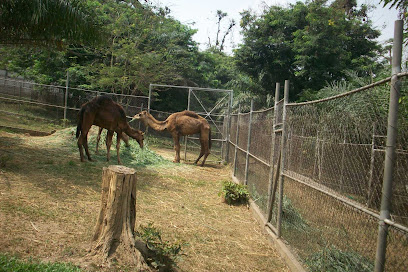
KNUST Botanical Garden
Explore the breathtaking beauty and tranquility of KNUST Botanical Garden, a serene oasis in Kumasi filled with diverse flora and educational opportunities.
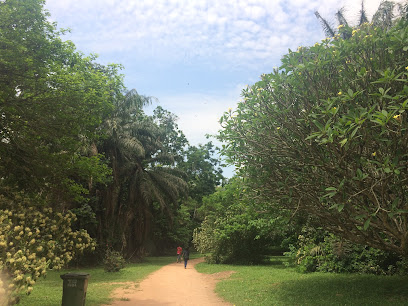
Rattray Park
Discover the serene beauty of Rattray Park in Kumasi, a perfect recreational retreat for nature lovers and families.
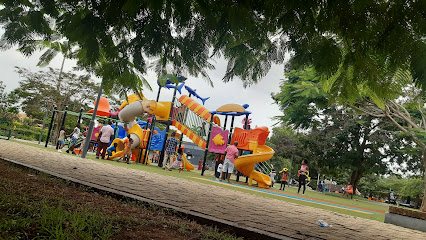
Ntonso Adinkra Village
Explore the vibrant culture of Ntonso Adinkra Village, where traditional craftsmanship and rich Ashanti heritage come together in exquisite textiles.
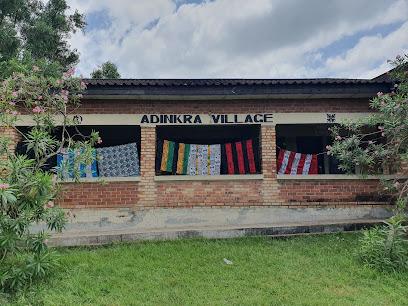
Sapphire Gardens
Experience tranquility and natural beauty at Sapphire Gardens, a serene city park in Kumasi, perfect for relaxation and family outings.
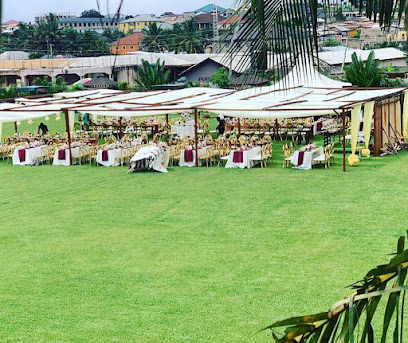
Armed Forces Museum
Explore Ghana's military history at the Armed Forces Museum in Kumasi, showcasing artifacts and exhibitions that honor the nation's armed forces.
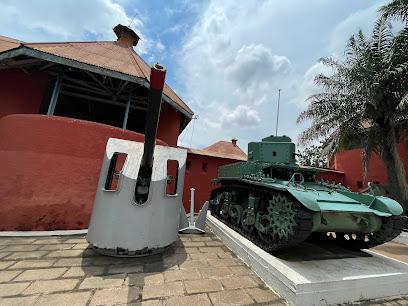
Africa Unity Park
Discover the charm of Africa Unity Park in Kumasi, a serene escape filled with cultural monuments and lush landscapes perfect for relaxation and exploration.
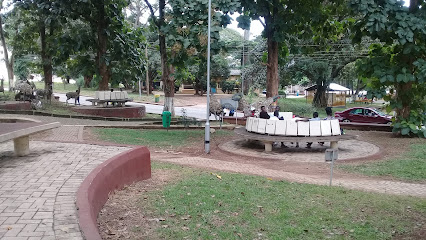
Prempeh II Jubilee Museum
Explore Prempeh II Jubilee Museum in Kumasi: A cultural hub showcasing the rich heritage of the Ashanti Kingdom through fascinating exhibits and artifacts.
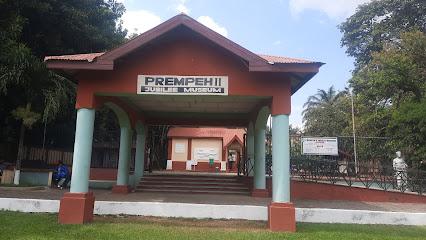
Buokrom Estate (E-line Park)
Explore the serene beauty of Buokrom Estate (E-line Park) in Kumasi, where nature meets relaxation for the perfect getaway.
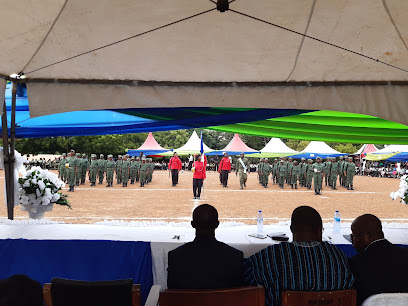
Yy
Explore Yy Park in Kumasi, a peaceful retreat surrounded by nature, ideal for families and nature lovers seeking tranquility and relaxation.
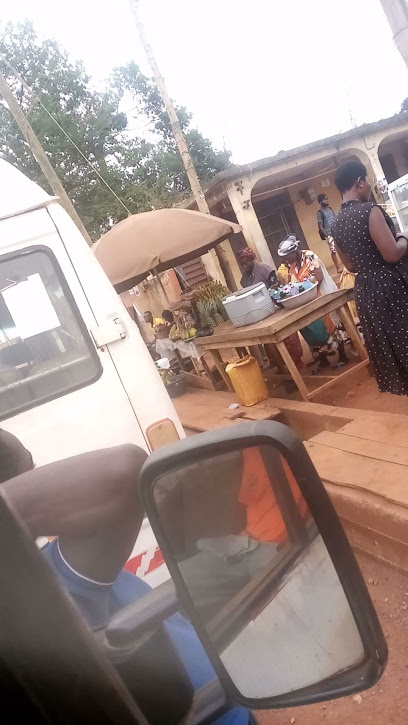
Anyaano M/A School Park
Experience the serene beauty of Anyaano M/A School Park in Kumasi, a perfect escape for relaxation and family fun amidst nature's tranquility.
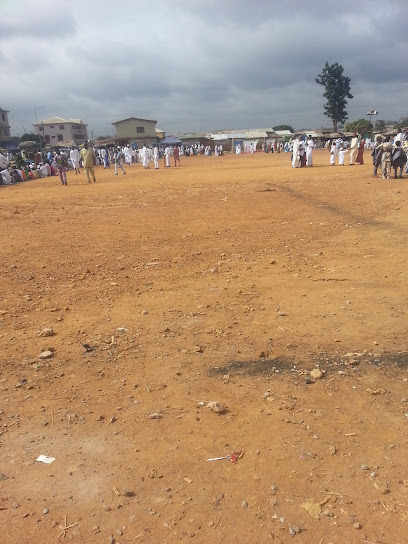
Gyamfuah Asenso Park
Explore Gyamfuah Asenso Park, a serene green space in Kumasi, perfect for relaxation, picnics, and cultural experiences amidst nature's beauty.
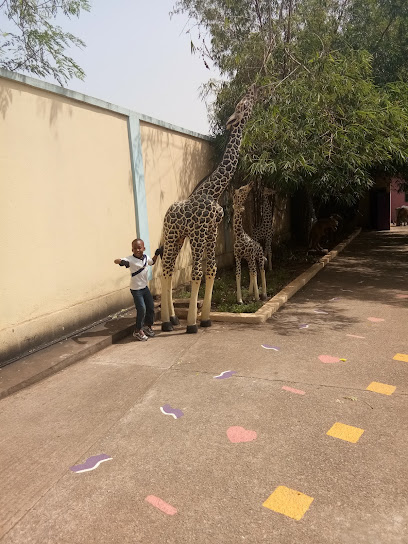
Essential places to dine
Ike’s Cafe and Grill
Experience authentic Ghanaian cuisine at Ike's Cafe and Grill in Kumasi - where every meal tells a story.
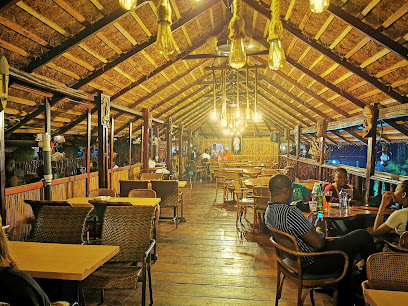
Tasty Queen
Experience authentic Ghanaian cuisine at Tasty Queen in Kumasi—where every meal tells a story of flavor and culture.
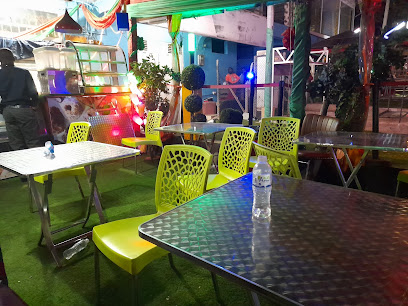
Aboude Fast Food
Discover delectable local and international dishes at Aboude Fast Food in Kumasi – your go-to spot for casual dining!
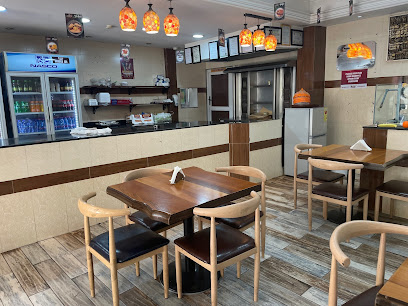
Its My Kitchen Restaurant
Experience the rich flavors of Ghana at Its My Kitchen Restaurant, where traditional cuisine meets warm hospitality in Kumasi.
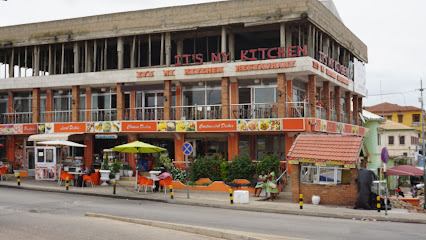
Noble House - Kumasi
Experience exquisite Chinese and Indian cuisine at Noble House - Kumasi, where culinary artistry meets warm hospitality.
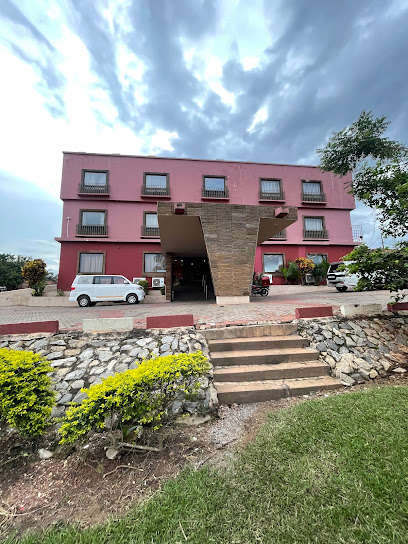
The View Bar & Grill
Experience delectable local and international cuisine at The View Bar & Grill in Kumasi, where stunning views meet vibrant dining.
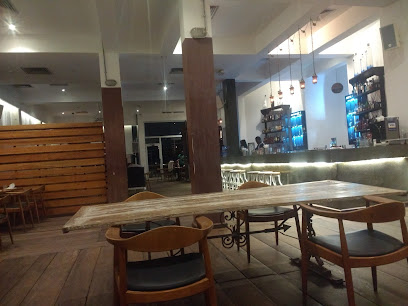
Momo's Pool Bar
Experience vibrant dining and relaxation at Momo's Pool Bar in Kumasi - where good food meets great company by the poolside.
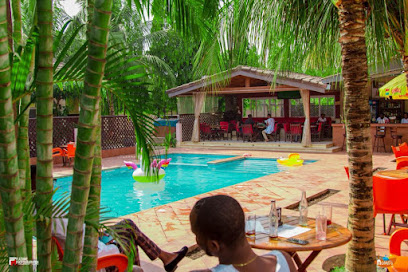
Mckeown Restaurant
Discover Mckeown Restaurant in Kumasi: A culinary gem blending local flavors with international cuisine for an unforgettable dining experience.

Sweet Garden Hotel Restaurant
Experience the vibrant flavors of Ghana at Sweet Garden Hotel Restaurant in Kumasi—where local cuisine meets international flair.
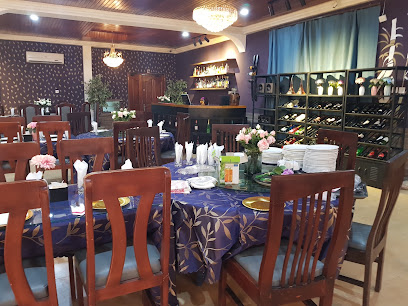
Yaa Serwaa Chop Bar Adum
Savor authentic Ghanaian dishes in a warm and welcoming atmosphere at Yaa Serwaa Chop Bar in Kumasi.
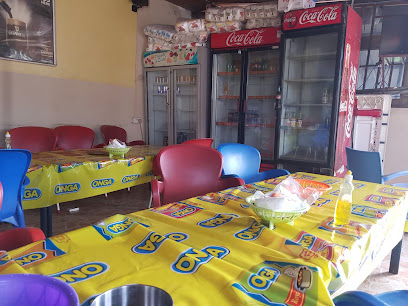
Han Court Chinese Restaurant
Savor authentic Chinese flavors at Han Court Restaurant in Kumasi - where tradition meets taste.
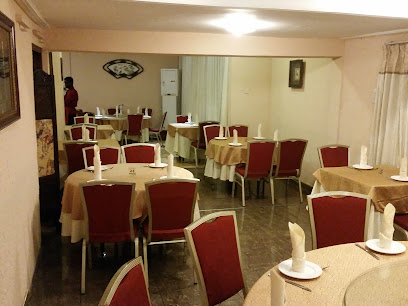
8o8 Bistro
Discover the culinary magic at 8o8 Bistro in Kumasi – where local flavors meet international cuisine in a vibrant atmosphere.
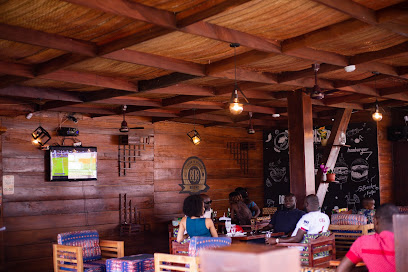
KRB Restaurant
Experience authentic Ghanaian flavors at KRB Restaurant in Kumasi – a culinary haven offering delicious dishes at affordable prices.
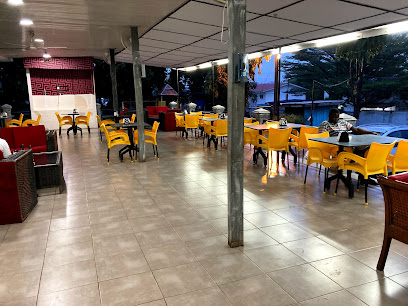
Casa
Discover Casa: A vibrant restaurant in Kumasi offering an exquisite blend of local and international cuisines amidst warm hospitality.
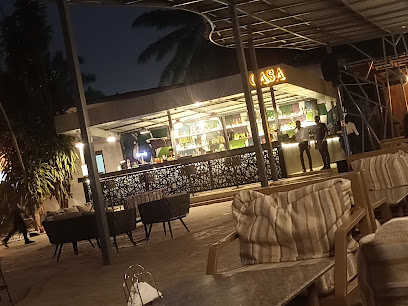
AMBE
Experience the rich flavors of Ghana at AMBE in Kumasi - a must-visit restaurant for culinary enthusiasts!
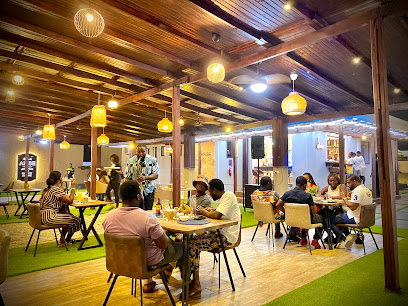
Markets, malls and hidden boutiques
Kumasi City Mall
Experience shopping, dining, and entertainment at Kumasi City Mall, your go-to destination in Ghana for a memorable retail therapy experience.
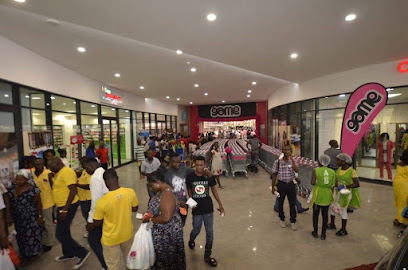
ABC Mart
Experience the best of Kumasi at ABC Mart, where shopping and local culture blend seamlessly for an unforgettable visit.

Ultimate Fashions
Explore the heart of Kumasi's fashion scene at Ultimate Fashions, where local style meets contemporary trends.
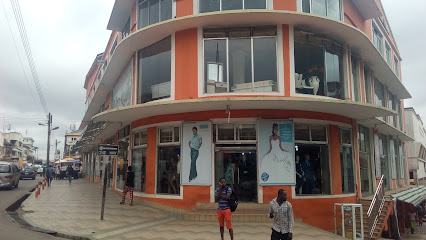
iStore (Apple Authorised Reseller & Apple Authorised Service Center)
Discover the latest Apple products and expert services at iStore in Kumasi City Mall, your one-stop destination for all things Apple.

Excellence Boutique
Discover unique fashion and artisanal crafts at Excellence Boutique in Kumasi, the perfect blend of style and culture.
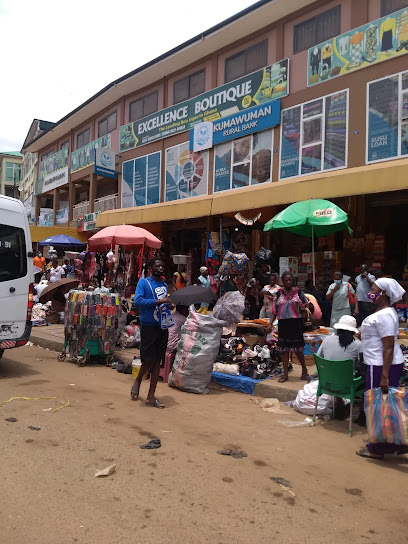
Abisshop 75 Ent
Explore Abisshop 75 Ent in Kumasi for exquisite handcrafted jewelry that reflects the rich Ghanaian culture and artistry.
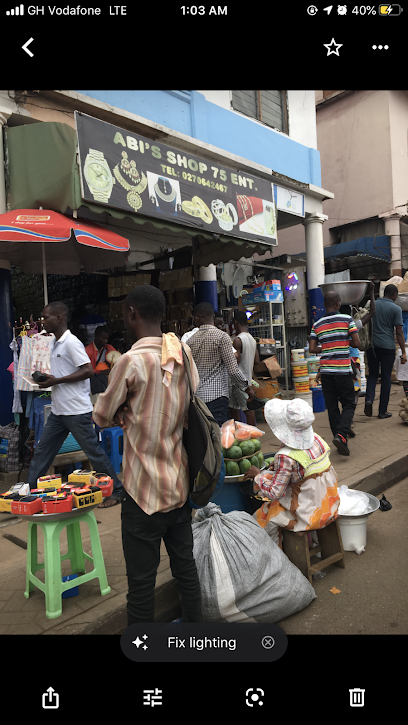
Niellas Gift Hub & More
Discover the heart of Ghanaian creativity at Niellas Gift Hub & More, offering unique gifts and souvenirs that celebrate local artistry.

Kumasi Ghana
Discover Kumasi, Ghana's vibrant cultural hub, where rich traditions, lively markets, and warm hospitality converge in an unforgettable travel experience.
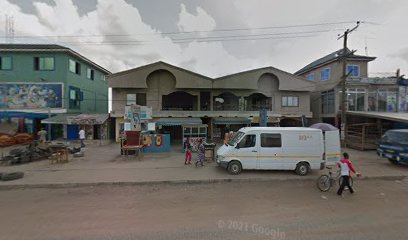
Oscamag Boutique and Mothercare
Discover the best of Ghanaian fashion and mother care essentials at Oscamag Boutique and Mothercare in Kumasi.
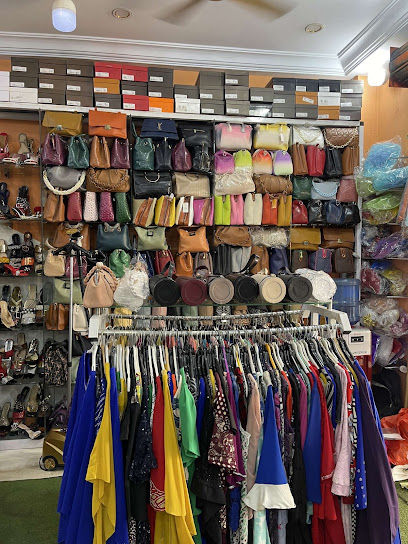
Jocent-Kumasi City Mall
Explore Jocent-Kumasi City Mall: A vibrant shopping and dining destination in Kumasi, perfect for immersing in local culture and style.
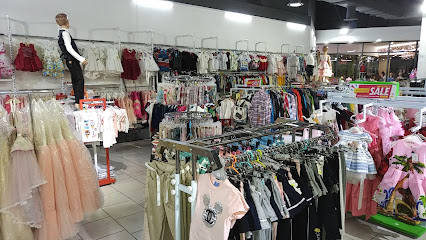
kweSi Shoes
Explore KweSi Shoes in Kumasi for stylish footwear that blends traditional Ghanaian culture with modern trends.
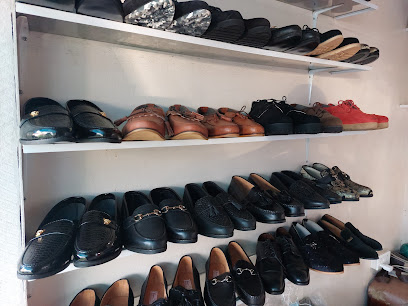
Dear Baby Shop
Discover everything for your little one at Dear Baby Shop, the go-to destination for stylish and essential baby products in Kumasi.
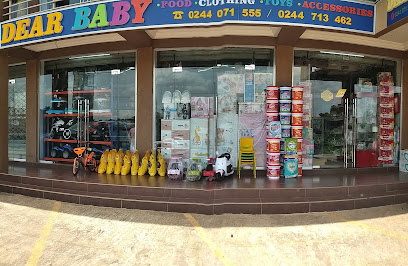
Kumasi Donkomi
Discover Kumasi Donkomi, the ultimate shopping destination in Kumasi, Ghana, for stylish footwear and trendy clothing for men and women.
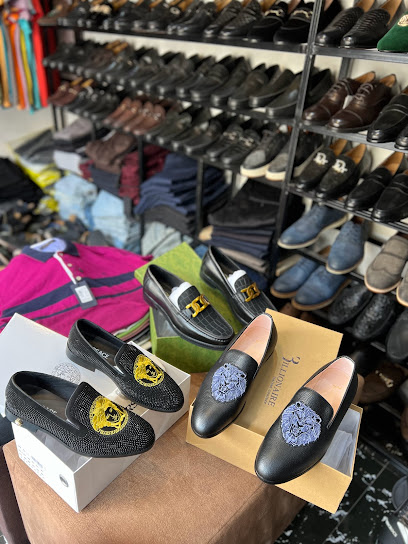
Unique Aromas Kumasi Ahodwo
Explore the vibrant world of beauty at Unique Aromas Kumasi Ahodwo, where quality meets tradition in a delightful shopping experience.
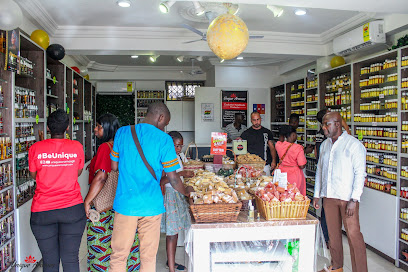
Unique diamonds gift house
Explore Unique Diamonds Gift House, where exquisite jewelry and handcrafted gifts await every traveler in search of the perfect keepsake.

Essential bars & hidden hideouts
Ol' Lady Sports Bar & Lounge
Discover the lively Ol' Lady Sports Bar & Lounge in Kumasi, where great drinks, local cuisine, and vibrant entertainment await every visitor.
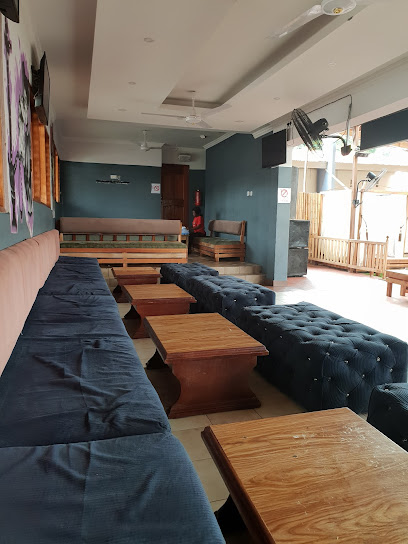
+2 Pub
Discover a lively atmosphere at +2 Pub in Kumasi, where delicious food, refreshing drinks, and vibrant nightlife await.
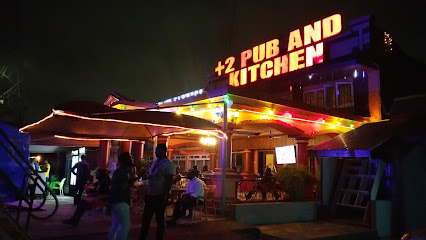
The View Bar & Grill
Experience the vibrant culinary scene of Kumasi at The View Bar & Grill, where local flavors meet international cuisine in a stunning setting.
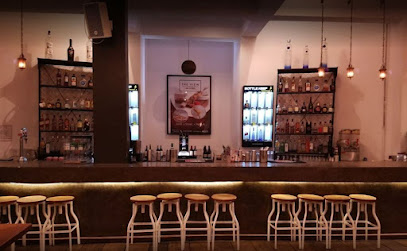
Bulldog Pub
Experience the vibrant nightlife at Bulldog Pub, a lively bar in Kumasi, offering a mix of local brews and a welcoming ambiance.
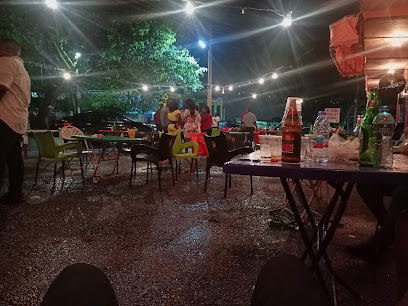
THE INSIDE (KUMASI)
Experience the vibrant flavors of Ghana at The Inside in Kumasi, where grilled delights and lively atmosphere await every visitor.
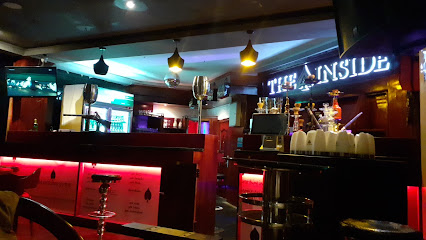
Sky Bar Kumasi
Experience the vibrant flavors of Kumasi at Sky Bar, where exceptional grill cuisine meets stunning city views in a lively atmosphere.
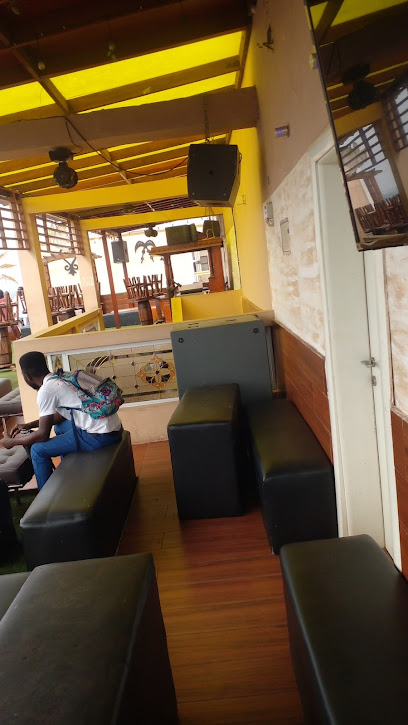
US 123 PUB & RESTAURANT
Discover the lively atmosphere and delicious fusion cuisine at US 123 Pub & Restaurant, a must-visit dining destination in Kumasi.
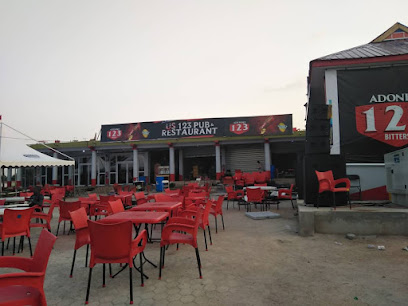
S Bar (Soul's Bar)
Experience the vibrant nightlife of Kumasi at S Bar, where local flavors and lively entertainment come together in a welcoming atmosphere.
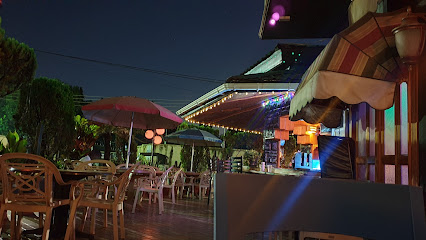
THE YARD
Experience the vibrant nightlife and local culture at THE YARD, a must-visit bar in the heart of Kumasi offering diverse drinks and lively entertainment.
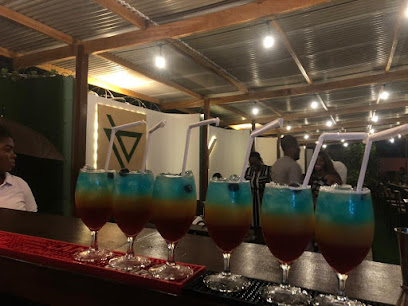
Queens Sports Bar & Restaurant
Experience the excitement of sports and savor delicious cuisine at Queens Sports Bar & Restaurant, Kumasi's favorite gathering spot for fans and food lovers.
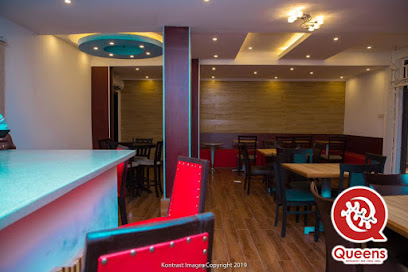
ROOT PUB
Discover the lively atmosphere and local charm at ROOT PUB in Kumasi, where great drinks and entertainment await you.
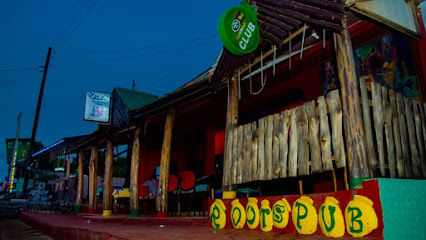
Shugar Lounge
Discover Shugar Lounge in Kumasi: where vibrant nightlife meets a cozy pub atmosphere, perfect for socializing and enjoying local drinks.
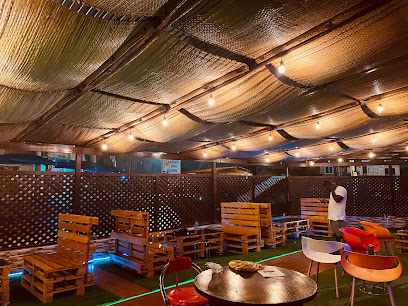
Bubbles Pub & Grill
Savor the vibrant flavors of Kumasi at Bubbles Pub & Grill, where great food and drinks meet a lively atmosphere for an unforgettable dining experience.
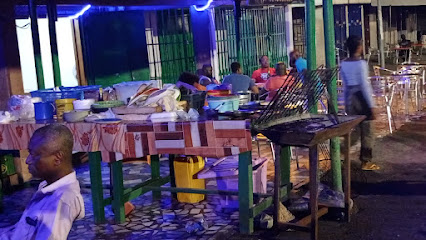
Truth Pub & Lounge
Experience the vibrant nightlife at Truth Pub & Lounge in Kumasi, where great drinks and a lively atmosphere await you.
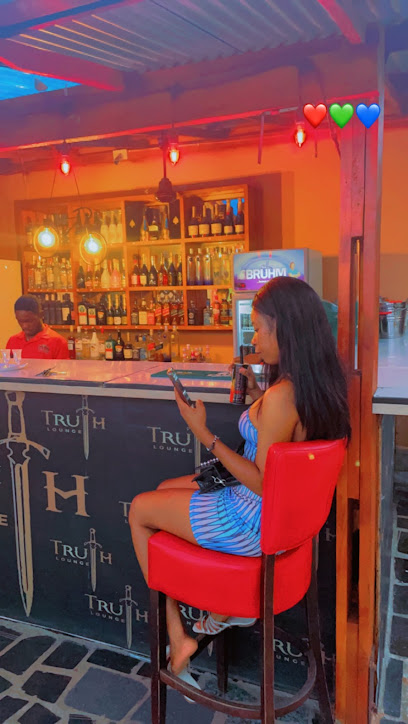
P2 LOUNGE
Immerse yourself in the vibrant nightlife at P2 Lounge in Kumasi, where relaxation meets a lively atmosphere and unique flavors await.
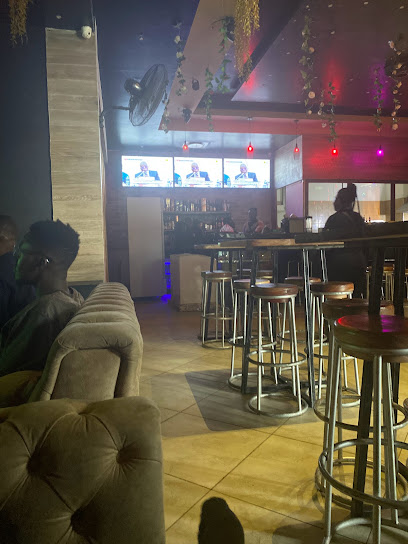
Local Phrases
-
- HelloMaakye
[mah-chi] - GoodbyeDa yie
[dah yee-eh] - YesYoo
[yo] - NoDaabi
[dah-bee] - Please/You're welcomeMesu
[meh-soo] - Thank youMedaase
[meh-dah-say] - Excuse me/SorryMepa wo kyew
[meh-pah woh chee-eh] - How are you?Wo ho te sen?
[woh hoh teh sen] - Fine. And you?Adom. Na wo nso?
[ah-dome. nah woh en-so] - Do you speak English?Wo p3 s3 anaa?
[woh peh say ah-nah] - I don't understandMe nni hwee
[meh nee hwee]
- HelloMaakye
-
- I'd like to see the menu, pleaseMeka menu f3re
[meh-kah men-oo feh-reh] - I don't eat meatMe nni nkwan
[meh nee en-kwahn] - Cheers!Nkwa
[en-kwah] - I would like to pay, pleaseMeka wo ho
[meh-kah woh hoh]
- I'd like to see the menu, pleaseMeka menu f3re
-
- Help!M'ani da
[mah-nee dah] - Go away!Kaa w'ani
[kaah wuh-nee] - Call the Police!Kyer3 Police!
[cheh-reh poh-lee-chay] - Call a doctor!Kyer3 dokita!
[cheh-reh doh-kee-tah] - I'm lostMe nni d3
[meh nee deh] - I'm illMe nb3
[meh en-beh]
- Help!M'ani da
-
- I'd like to buy...Meka...
[meh-kah] - I'm just lookingMe nni hwee
[meh nee hwee] - How much is it?Afe ka ho?
[ah-feh kah hoh] - That's too expensiveAfe p3
[ah-feh peh] - Can you lower the price?Wo p3 afee ho?
[woh peh ah-feh hoh]
- I'd like to buy...Meka...
-
- What time is it?Afe saa ara?
[ah-feh sah ah-rah] - It's one o'clockAfe kakra
[ah-feh kah-krah] - Half past (10)Afe p3ntin
[ah-feh pen-teen] - MorningAnɔpa
[ah-noh-pah] - AfternoonAwia
[ah-wee-ah] - EveningAnadwo
[ah-nah-dwoh] - YesterdayNwentoma
[nwehn-toh-mah] - TodayNnidi
[nee-dee] - TomorrowNnidi mu
[nee-dee moo] - 1Koro
[koh-roh] - 2Mmienu
[mee-nu] - 3Mmiɛnsa
[mee-en-sah] - 4Mminyɛ
[mee-nyeh] - 5Mmibi
[mee-bee] - 6Mmifia
[mee-fyah] - 7Mminan
[mee-nahn] - 8Mminim
[mee-neem] - 9Mmisor
[mee-saw] - 10Mmitutu
[mee-too-too]
- What time is it?Afe saa ara?
-
- Where's a/the...?Afe sɛn?
[ah-feh sen] - What's the address?Nkɔso sɛn?
[en-kaw-so sen] - Can you show me (on the map)?Wo pɛ sɛ w'ani (a map mu)?
[woh peh say wuh-nee (ah map moo)] - When's the next (bus)?Bɛtumi dɔɔ
[beh-too-mee doh-oh] - A ticket (to ....)Afeete (kɔ ...)
[ah-feh-teh (koh)]
- Where's a/the...?Afe sɛn?
History of Kumasi
-
Kumasi, the capital city of the Ashanti Region in Ghana, was established in 1695 by the Ashanti King Osei Tutu. The city was named after the kum tree under which Osei Tutu sat while negotiating the Ashanti kingdom's unification. Kumasi quickly became the center of the Ashanti Empire, which dominated the region in the late 17th and early 18th centuries.
-
The Ashanti Empire, with Kumasi as its capital, was a powerful and wealthy state in West Africa. It thrived on gold trade and had a sophisticated political structure. The Ashanti were known for their military prowess, cultural achievements, and the famous Golden Stool, which symbolized the unity and spirit of the Ashanti people. The empire's wealth and power made Kumasi a significant hub of commerce and culture.
-
In the late 19th century, the British sought to control the rich resources of the Ashanti region. After several conflicts, including the Anglo-Ashanti Wars, the British ultimately annexed the Ashanti Empire in 1902. Kumasi was incorporated into the British Gold Coast colony. Despite British rule, the Ashanti people maintained a strong sense of identity and cultural heritage.
-
In 1900, the Ashanti people, led by Queen Mother Yaa Asantewaa, rose up against British colonial rule in what is known as the Yaa Asantewaa War. The conflict was sparked by the British demand for the Golden Stool, a sacred symbol of Ashanti sovereignty. Although the Ashanti were eventually defeated, Yaa Asantewaa's leadership became a symbol of resistance and pride for the Ashanti people.
-
Ghana gained independence from British colonial rule in 1957, and Kumasi continued to play a pivotal role in the nation's development. As the second-largest city in Ghana, Kumasi has grown into a bustling urban center with a rich blend of traditional and modern influences. The city is known for its vibrant markets, including the famous Kejetia Market, and its role as a cultural and educational hub.
-
Kumasi is renowned for its cultural heritage, particularly the Adae Kese Festival, which celebrates the Ashanti monarchy and the Golden Stool. The festival includes traditional drumming, dancing, and processions, showcasing the rich cultural traditions of the Ashanti people. Kumasi is also home to the Manhyia Palace, the official residence of the Asantehene, the Ashanti king, and a major cultural and historical museum.
Kumasi Essentials
-
Kumasi is accessible via air, road, and rail. The primary gateway by air is the Kumasi International Airport (KMS), which has direct flights from Accra, the capital of Ghana. By road, Kumasi is connected to other major cities through a network of highways and intercity bus services. VIP Bus, STC, and other private bus companies offer comfortable and reliable services. For those preferring rail travel, the Ghana Railway Company operates services between Accra and Kumasi, though schedules can be irregular.
-
Within Kumasi, transportation options include taxis, tro-tros (minibuses), and ride-hailing services like Uber and Bolt. Taxis are widely available and can be hired for short trips or for the whole day. Tro-tros are a more economical option but can be crowded. For a more comfortable and flexible option, renting a car from one of the local agencies is possible. Walking is feasible for short distances, especially in the city center.
-
The official currency is the Ghanaian Cedi (GHS). Credit and debit cards are accepted in most hotels, restaurants, and major shops, but it is advisable to carry cash for smaller establishments and local markets. ATMs are widely available in Kumasi, but ensure your card is compatible with Ghanaian banking networks. Currency exchange services are available at banks and authorized forex bureaus.
-
Kumasi is generally safe for tourists, but it is important to stay vigilant. Areas like the Kejetia Market can be crowded, making it easier for pickpockets to operate. Avoid walking alone at night in poorly lit areas. Manhyia and Bantama are relatively safer neighborhoods for tourists. Always keep your valuables secure and be cautious when withdrawing money from ATMs.
-
In case of emergency, dial 191 for police assistance, 193 for fire service, and 195 for medical emergencies. Major hospitals include Komfo Anokye Teaching Hospital, which provides comprehensive medical services. Pharmacies are plentiful and can provide over-the-counter medications. It is advisable to have travel insurance that covers medical emergencies.
-
Fashion: Do dress modestly, particularly when visiting religious sites. Avoid overly revealing clothing. Religion: Do respect local customs and traditions. Always remove your shoes when entering a mosque and be respectful during religious ceremonies. Public Transport: Do be patient and polite when using tro-tros. Don't argue with the driver or conductor. Greetings: Do greet people with a handshake and a smile. Address older individuals respectfully, using titles like 'Nana' for elders. Eating & Drinking: Do try local dishes like fufu and jollof rice. Don't refuse food or drink offerings, as it may be considered impolite.
-
To experience Kumasi like a local, visit the Kejetia Market, one of the largest open-air markets in West Africa, where you can buy everything from textiles to fresh produce. Engage with locals, who are often friendly and eager to share their culture. Don't miss the Asantehene's Palace and the National Cultural Centre for a deep dive into Ashanti history and culture. For authentic local cuisine, dine at 'chop bars' where you can enjoy traditional dishes.
Trending Landmark in Kumasi
-
Kumasi City Mall
-
Kumasi Central Market
-
Lancaster Kumasi City
-
Kejetia Market
-
Ike’s Cafe and Grill
-
Kejetia New Market and Bus Terminal
-
Achemfour Market Station
-
Manhyia Palace
-
Kejetia Market (New)
-
Royal Parade Grounds
-
Vienna City Kumasi and Roses Guest House
-
komfo Anokye Sword Site
-
Baba Yara Sports Stadium
-
Kumasi Zoological Gardens
-
Noble House - Kumasi
Nearby Cities to Kumasi
-
Things To Do in Sunyani
-
Things To Do in Koforidua
-
Things To Do in Cape Coast
-
Things To Do in Sekondi-Takoradi
-
Things To Do in Takoradi
-
Things To Do in Accra
-
Things To Do in Ho
-
Things To Do in Kpalimé
-
Things To Do in Abidjan
-
Things To Do in Notse
-
Things To Do in Tamale
-
Things To Do in Atakpamé
-
Things To Do in Lomé
-
Things To Do in Aneho
-
Things To Do in Lokossa















